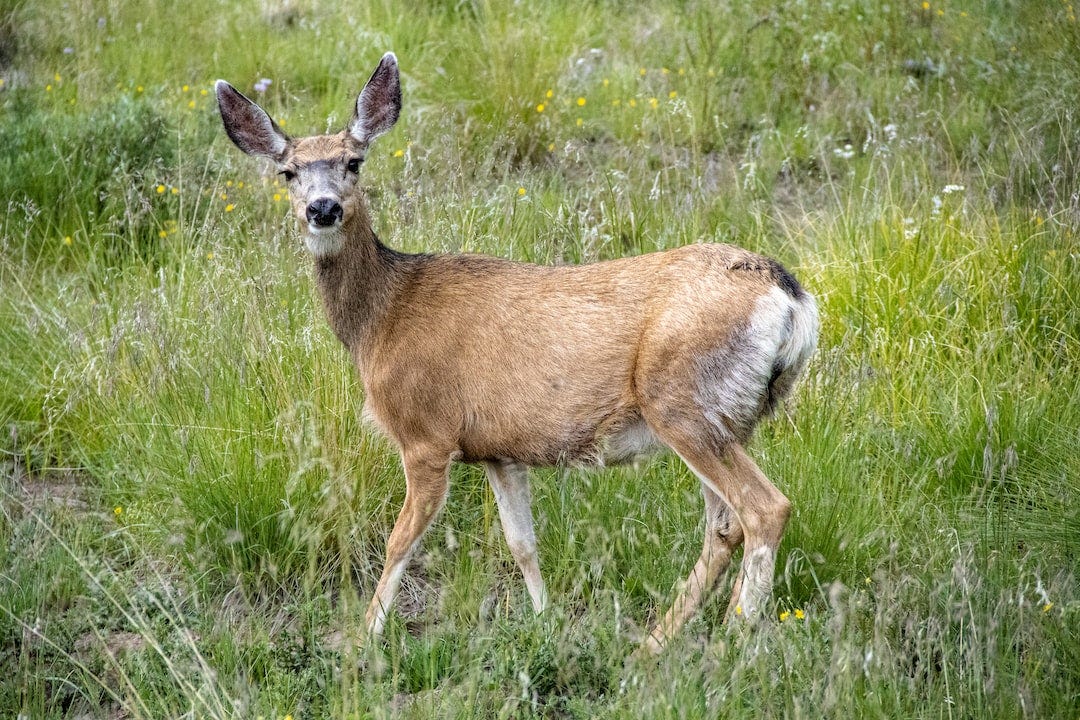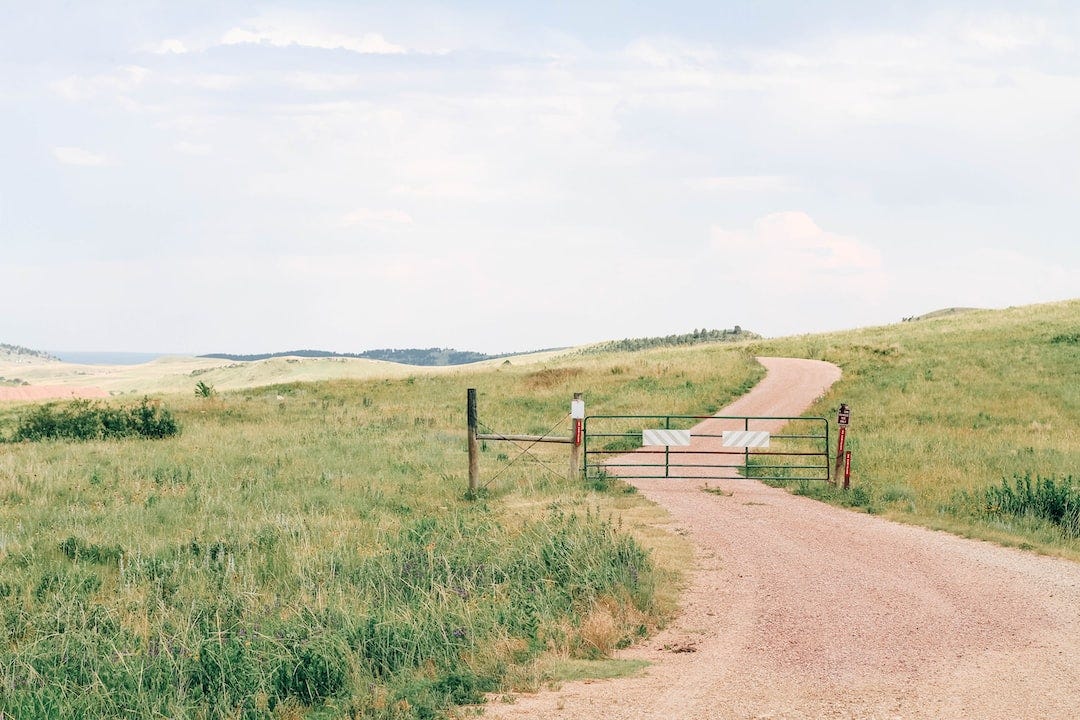Restoring Biodiversity - 11/14/2023
California takes to the sky to remove deer from Catalina Island. Is lab grown meat actually worse for the environment? Regenerative agriculture in action in North Dakota. And more.
Thank you for subscribing to the Pitchstone Waters weekly newsletter.
Here is what we’ve been reading, watching and writing about this week…
Articles

Desperate to Rid Catalina of Invasive Deer, Officials Propose Bold Helicopter Hunt
It’s hard to name a single wildlife “management” practice pursued by the big conservation bureaucracies that does not involve the wholesale killing out of entire wildlife populations. Their glaring management failures are blamed on climate change and 'invasive' species, in this case mule deer and bison!
The definition of ‘exotic’ and ‘invasive’ species is highly subjective and especially in California - which is the world's center of invasive species 'biology' - dubious at best.
The Nature Conservancy should use predators – including the apex predator (humans) – instead. Extend hunting seasons, ease entry restrictions.
Increase bison herd numbers and move the herd around to stimulate plants.
That the Nature Conservancy has moved so far from its roots shows the danger of conservation easements as the entrenched manager class within these bureaucracies become increasingly indifferent to the reasons for which they were established.

Lab Grown Artificial ‘Meat’ May Actually Be Worse for the Environment
Fake meat is a horrible idea which cannot survive economically unless we are dumb enough to subsidize it.
Feedlot beef is BAD for the environment. In contrast, range raised beef – produced as nature intended – is GREAT for the environment.
Videos

Regenerative Farming – A Quiet Revolution in Commercial Agriculture
“Outside Bismarck, ND is a ranch that exemplifies a quiet revolution in commercial agriculture. While more and more consumers learn about the overwhelming benefits of eating healthfully (preferably local, organic food), a growing number of farmers and ranchers are weaning themselves from the grip of a small cartel of extremely powerful chemical “pharming” corporations. They are returning to a style of farming that had always existed before.
Gabe & Paul Brown are a father and son who are not shy about showing off their beautiful land and visibly happy livestock. They practice what they call “Regenerative Farming” – a set of practices that encourage biodiversity and the natural enrichment of untilled soils. Improving soil health is a priority and no-till farming has been practiced since 1993. A diverse cropping strategy, which includes cover and companion crops are used.
They have elimnated the use of synthetic fertilizers, fungicides, and pesticides and use no GMO crops. The result? Incredibly good food they produce for less than half the cost of chemical farming.
Yep. Better food for less money with less damage to us and the planet. Win, win and win.”

Healing the Land with One Hundred Thousand Beating Hearts
Healing the Land with One Hundred Thousand Beating Hearts” is an inspirational short film that discusses regenerative agricultural practices on a Georgia farm.
This dying farm was regenerated using multi-species grazing in which all the animals were moved according to a plan that got them to the right place…at the right time… doing the right thing.
It worked great. Soil fertility, carrying capacity and profitability have increased dramatically. Wildlife including unexpected species like Bald Eagles have proliferated. And the farm prosperity’s has provided an economic lift to the small neighboring agricultural community that previously was drying up and blowing away.
Contrary to what most of Texas’ wildlife “managers” teach and practice, every concept discussed in this film translates to habitat and wildlife restoration.
—
And that’s it - as always thank you..
if you haven’t already - please check out our views on biodiversity at https://pitchstonewaters.com/blog/
Please pass along, and if you if you received this from a friend - consider subscribing below.
